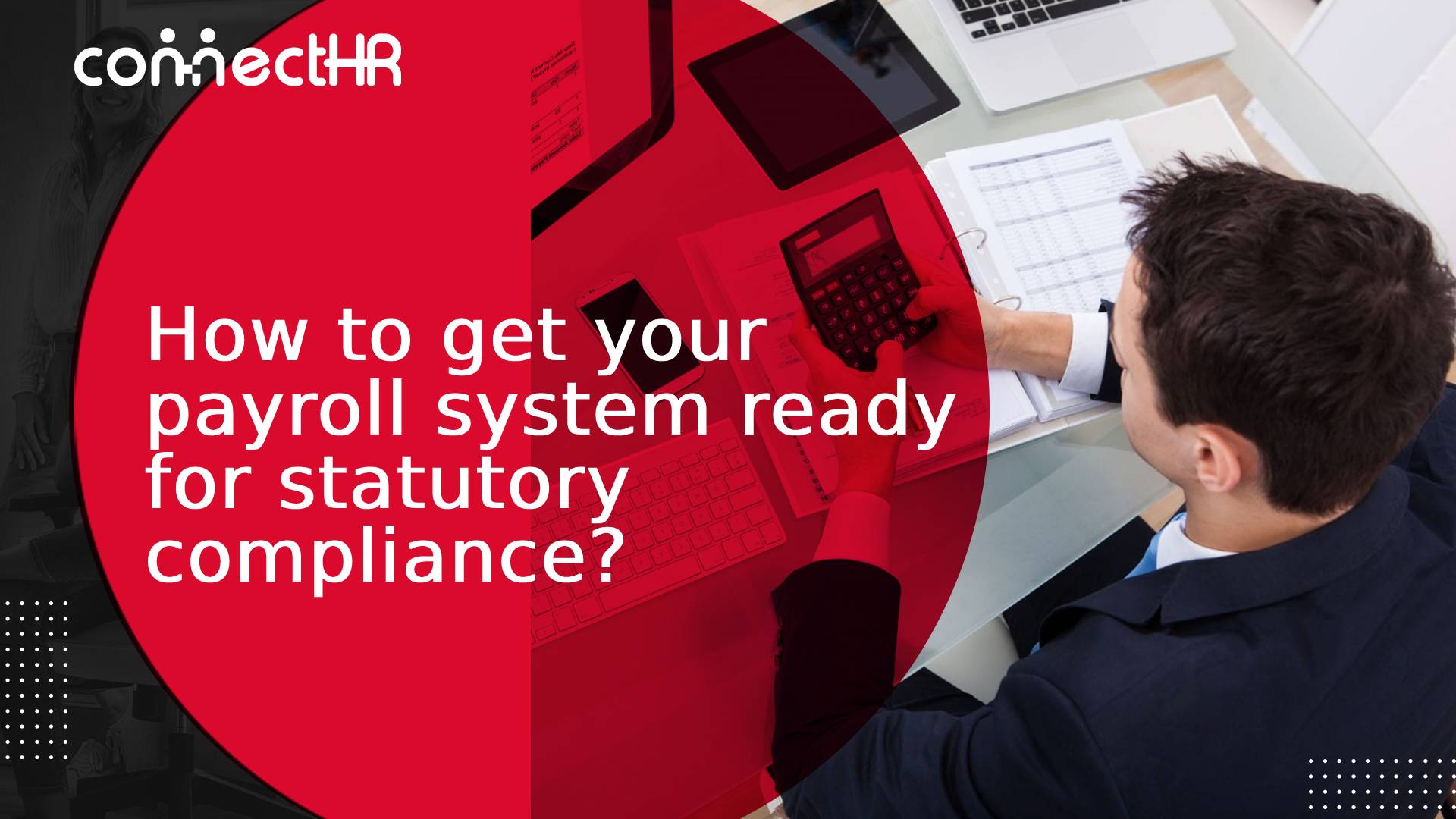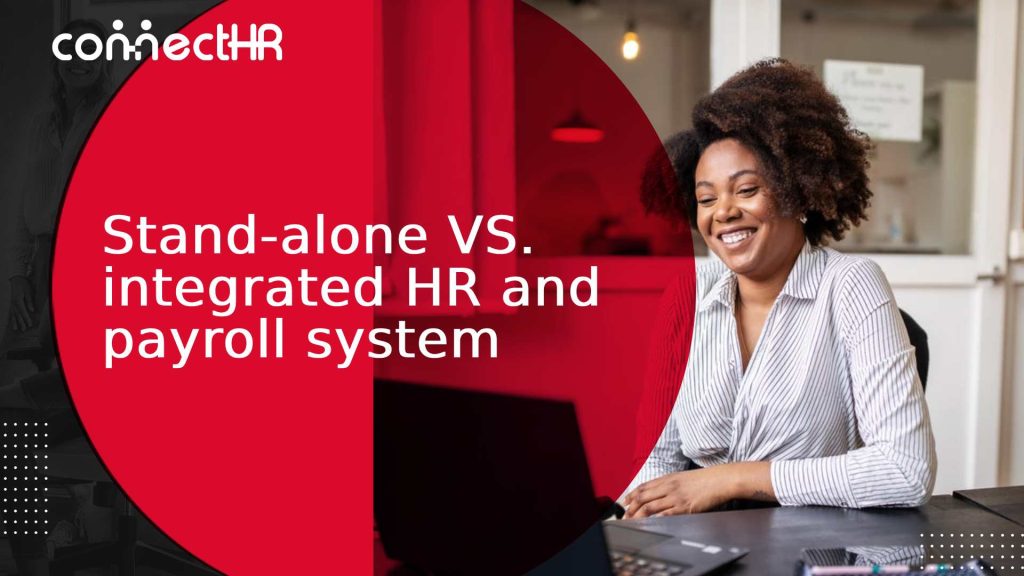Over the last three decades, the UAE has seen a remarkable and fast transition. This is because it has become an appealing destination to develop a company abroad. All owing to its attractive tax policy, free trade zones, and access to the world’s quickest and most significant markets. As a consequence, payroll management is less cumbersome.
In this article, you will discover how to make your payroll system ready for statutory compliance. This is achieved thanks to the software solutions given by numerous accredited human resources software suppliers. Your organization will comply with payroll rules with everything we shall describe below. The subjects to explain this article are:
- What is payroll management, and why is it important?
- Which are the phases of payroll management?
- How is payroll management carried out in the UAE?
- What are the economic zones of the UAE?
- Should Statutory Compliance be taken into account?
- What should companies consider about payroll compliance in the UAE?
- Have there been any changes in the Federal UAE Labour and Employment Laws regulations that affect payroll management?
- How can we help you with your company’s payroll management?
1. What is payroll management, and why is it important?
For a corporation, no matter if it is a big or small business, one of its goals must be the well-being of its personnel. Not just through teaching them or providing them a wide variety of perks but also by guaranteeing the payroll system. Despite this, many firms do not pay it the significance it deserves. That is why it must be made clear what payroll management is.
A payroll management system is the technique through which businesses pay their employees. It is also how they show their appreciation for their staff by giving them the recognition they deserve—fulfilling their obligations to government agencies and keeping financial documents in order.
Payroll administration is an essential component of every organization since it improves work engagement and compliance with regulations. Therefore, payroll is a critical consideration in the UAE. Following the global financial crisis of 2008, the UAE enacted legislation and regulations to assure payroll.
That is why a robust payroll management system is critical for every business. Companies may experience difficulties if they do not have an effective and correct method of paying workers, depositing and submitting taxes, and preserving records. Problems range from pay claims and costly fines to the departure of many of your staff.
2. Which are the phases of payroll management?
Although payroll has been a required activity for businesses since its creation, organizations outsource payroll daily. As we have previously said in other articles, it is best to use management software when it relates to payroll processing. In this instance, a service provider such as Connect HR may assist the organization.
There are three critical steps to take when it comes to implementing a proper payroll management system. These stages are nothing but methods that aid in payroll organization. In a nutshell, consider these fundamental stages as a road plan for the HR department to follow.
Regardless of how employers choose to manage payroll, the management of these processes generally consists of three phases:
2.1 Processes before payroll
Employers collect pertinent data for the pay period following stated corporate rules and legal obligations. These include work hours by non-exempt personnel and time off for vacation, illness, jury duty, and other reasons. Employee alterations, such as new hiring, wage raises, or changes in benefit tax withholdings, should also be considered.
2.2 Payroll calculations
Employers compute the total gross compensation earned by each employee throughout the pay period. They also calculate the employee withholding taxes and deductions. As a consequence, there will be a net pay. However, they also accumulate their tax burden for the same period. In a nutshell, Companies must complete all payroll calculations.
2.3 Processes after payroll
Employers balance their payroll and submit their taxes within the deadline. In addition, companies process any payments, like wage withholding orders. Companies also recompense their workers with a pay stub or salary statement. Many of these things are mandated in a variety of areas.
3. How is payroll management carried out in the UAE?
As part of the payroll process, employers in the UAE have various duties. Tax-withholding is not generally a factor in the UAE since there is no individual or company income tax. Except for some oil and gas enterprises and certain overseas bank branches.
Like those in the rest of the globe, companies in the emirates must pay the appropriate contributions. As a result, they must withhold pension payments for UAE residents. However, foreign employees do not contribute to or receive retirement funds. Workers in the local government pay 5% of their earnings or salary to pension social security, whereas employees in the private sector contribute more.
When it comes to overseas employees, the issue arises—personnel who operate in local firms either remotely or on-site. In addition, payroll management is complex due to the need to comply rules of their home countries as well as the regulations of the UAE. As a result, the human resources department in charge of the payment process has additional challenges.
4. What are the economic zones of the UAE?
Economic zones can impact payroll due to compliance with rules and regulations. For example, the UAE features several free zones spread over its areas, including Abu Dhabi, Sharjah, Fujairah, Ras al-Khaimah, Ajman, Umm al-Quwain, and Dubai. There are three types of free zones: airport free zones, seaport free zones, and mainland free zones.
Each zone is built around one or even more business sector groups and exclusively permits enterprises that fall within those areas. Each one of them is governed by an autonomous Free Zone Authority (FZA), which is also in charge of providing FTZ operating permits. They also help businesses in establishing themselves in FTZs.
The UAE government splits them into two categories: Mainland and Free Zone. One distinction between the two is using the WPS for payroll administration. If the firm is registered on the Mainland, it must follow the UAE government’s labor rules. Companies use a Wage Protection System to pay all of its workers.
On the other hand, if your firm is established inside one of the Free Zones, you will have greater freedom in using WPS. Only a few organizations have adopted the WPS for their workers’ security and financial well-being. However, each Free Zone company may have its regulations and compliance standards.
5. Should Statutory Compliance be taken into account?
Before we address the question, let us define Statutory Compliance. Statutory compliance refers to the laws and regulations that businesses must follow while interacting with their personnel. They have many sophisticated measures to manage, ranging from payroll and benefits management to recruiting and firing procedures.
As we have previously said in this post, firms must prioritize the legal environment. To reduce the danger of fines, penalties, or litigation, it is vital to complete all of its lawful activities. Payroll services are the easiest method to do this. Having an accurate and reliable payroll solution may help your firm comply with the law.
To ensure statutory compliance in payroll, You have to consider three main factors: transparency, accuracy, and security. The HR staff can accomplish payroll compliance if these three factors are took into account. We shall discuss the significance of these factors when deploying payroll software to guarantee statutory compliance in the sections that follow.
5.1 Transparency
Companies are becoming more open in their employee perks and project management approach. However, payroll administration is a complex procedure, and all calculations must be precise to prevent complications. As a result, transparency is critical for workers since it guarantees that the calculations are accurate.
Employees will have complete transparency about their payroll and deductions by deploying useful software to access their payroll information.
5.2 Accuracy
Payroll accuracy is critical, as noted in the preceding paragraph. When inaccurate, it may cause difficulties not just between employees but also between the firm. It may also result in legal issues owing to non-compliance with labor regulations.
As a result, HR payroll software assures compliant payroll runs following the company’s rules via process automation. This enables your company to produce accurate and quick payroll data.
5.3 Security
Companies usually dismiss the security of payroll information but is always critical. This information is essential and sensitive in most circumstances, such as employee bank account information and other data. If there is a loss of employee financial data might, it can cause a delay in the payroll process.
When a delay occurs, it may result in penalties for non-compliance with payroll requirements. Human resources providers or payroll software ensure employee data security. As a result, you may prevent as many unfavorable factors that might influence payroll as feasible.
6. What should companies consider about payroll compliance in the UAE?
There are various things you should be aware of regarding payroll procedures and compliance standards in the UAE. The great news is that enterprises in free zones do not have to pay income taxes. They provide tax exemptions for durations ranging from 15 to 50 years. If your company is inside of a Free Zone, you have to check into the labor rules of it.
Employers may access these laws on the various websites maintained by the UAE government. It is also vital to understand that laws may exist inside these zones. Since the body controlling the free zone may have its series of payroll rules. As a result, you should be conscious of this before beginning any payroll procedure.
7. Have there been any changes in the Federal UAE Labour and Employment Laws regulations that affect payroll management?
To respond to contemporary demands, the UAE government adopted various modifications to labor relations in 2021. As a result, all private sector companies will have consider developing and implementing new employment contracts.
They must also alter written rules or manuals for their employees to reflect the New Law. All private-sector businesses must implement these modifications by February 1, 2023. Certain conditions may become unenforceable as a result of non-compliance. Alternatively, they may result in penalties that can go up to AED 1,000,000 for failing to comply with the New Law.
Some of the modifications required by the new labor legislation have an immediate impact on payroll management. Something the Ministry of Human Resources and Emiratisation has stressed due to its significance in workers’ financial well-being. Because the purpose of this New Law is really to unite the labor force and improve workers’ rights.
The following are the new modifications in the new labor legislation that influence statutory compliance in payroll:
7.1 Overtime
The New Law fundamentally alters the functioning of overtime. Overtime was limited to two hours every day under the Old Law. Total working hours, including overtime, are limited to 144 hours under the New Law in three weeks. Companies calculate overtime just on the base wage.
7.2 Maternity leave
Paid maternity leave seems to be more extensive. It provides 45 days of full pay and an additional 15 days of half pay without no minimum qualifying specific requirements. If a female employee suffers from a pregnancy-related ailment, companies give her 45 days of unpaid leave.
7.3 Salary currency
The New Law authorizes the use of any currency. Nevertheless, the Executive Regulations should address how this would work in reality. Precisely, how it will match with the WPS, which applies to MHRE-regulated companies and mandates payment in AED.
7.4 Holidays & annual leave
Employees must now utilize their yearly leave entitlement over the Christmas season. If a worker has accumulated but unutilized annual leave, the HR department would determine payment in lieu at termination. Companies, however, calculate this only on the base salary.
8. How can we help you with your company’s payroll management?
Payroll rules are becoming more significant if your firm is based in the UAE. All businesses should prioritize the implementation of payroll software to guarantee such operations. You will not only be complying with the law, but you will also be boosting the employee-company connection. This increases the productivity of the company’s divisions in the medium to long term.
Our firm is one of the best allies you can have in the UAE business market. It is not just one of Dubai’s preferred suppliers, but it also has over 20 years of expertise to help you cover any administrative needs in your company. Also, our WPS-Payroll solutions help you ensure statutory compliance in payroll.

This, in conjunction with your HRMS software or outsourcing services, will benefit your business. In this way, you can guarantee that your workers’ financial well-being and connection with the firm will improve.
Would you like to contact Connect HR for more information about our payroll solutions? If you have any questions, call us at + 97143316688 or write us an email at [email protected]. We are ready to asisst you!
Do you want to apply for hundreds of job offers in the Emirates and many other countries, or even for one of our vacancies? Do not wait any longer! Enter thetalentpoint.com and upload your resume or CV. Also, you can send them to [email protected]. We will review your application shortly!





